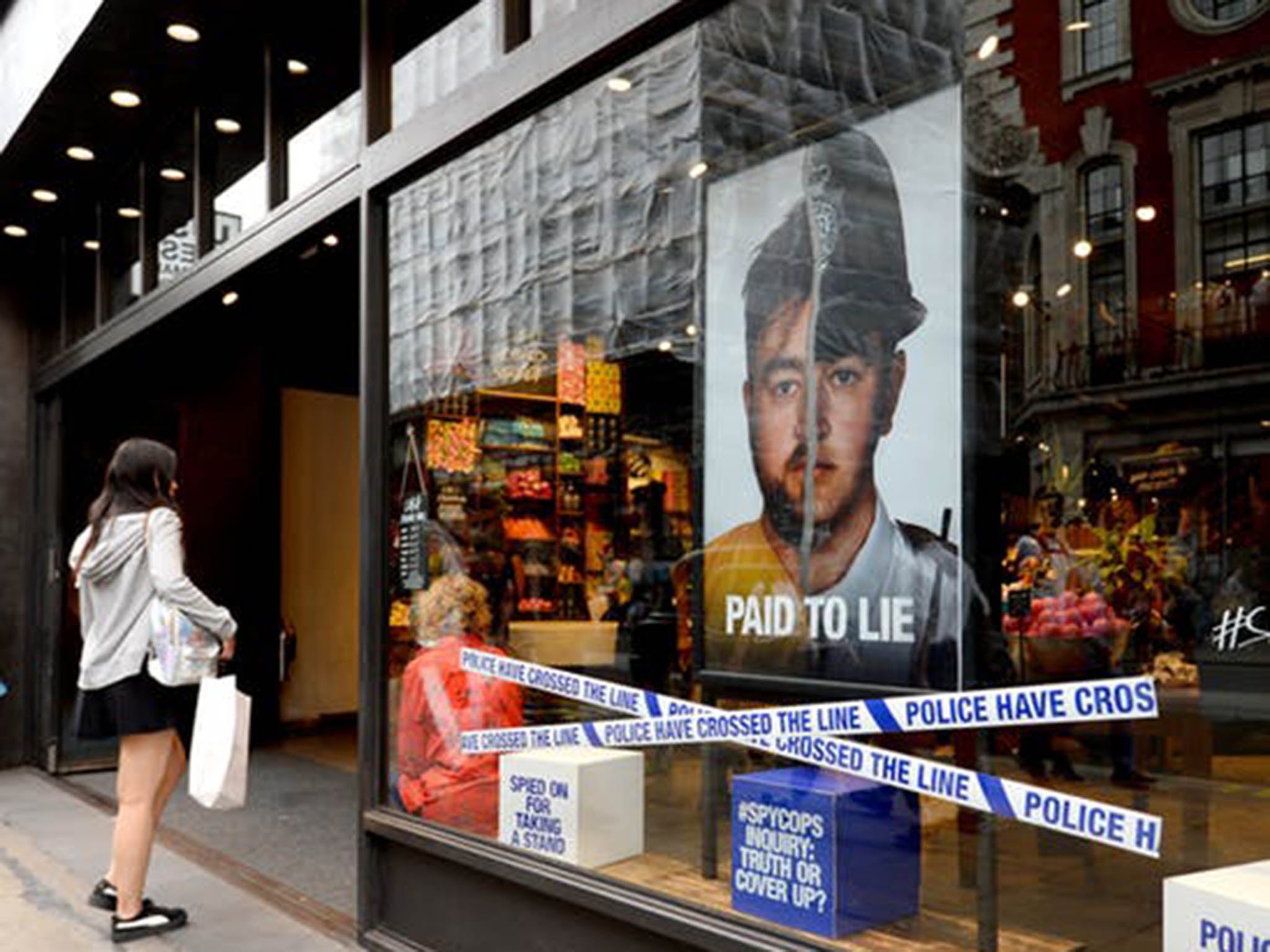Sex between undercover police and public ‘not uncommon’, inquiry told
‘It can safely be said that, from the mid-1970s onwards, sexual contact between SDS officers in their undercover identities and members of the public was not uncommon’, QC says

Your support helps us to tell the story
From reproductive rights to climate change to Big Tech, The Independent is on the ground when the story is developing. Whether it's investigating the financials of Elon Musk's pro-Trump PAC or producing our latest documentary, 'The A Word', which shines a light on the American women fighting for reproductive rights, we know how important it is to parse out the facts from the messaging.
At such a critical moment in US history, we need reporters on the ground. Your donation allows us to keep sending journalists to speak to both sides of the story.
The Independent is trusted by Americans across the entire political spectrum. And unlike many other quality news outlets, we choose not to lock Americans out of our reporting and analysis with paywalls. We believe quality journalism should be available to everyone, paid for by those who can afford it.
Your support makes all the difference.Sexual activity between undercover policemen and members of the public who did not know their true identities was “not uncommon” from the mid 1970s, an inquiry has heard.
The Undercover Policing Inquiry, which is investigating the activities of two shadowy police units following condemnation of their tactics during investigations, heard that the then all-male Special Demonstration Squad (SDS) would make jokes about sexual relationships in front of managers.
Officers were given no written instructions to govern sexual relationships while undercover by the Metropolitan Police, with the inquiry hearing at least five officers had intimate contact with as many as 12 women between 1972 and 1983.
The Inquiry is currently considering the time period as the first time undercover officers were known to have been sexually involved with members of the public, and were also instructed to take on parts of the identities of dead children to shore up their cover.
David Barr QC, who is serving as counsel to the inquiry, said: “It can safely be said that, from the mid-1970s onwards, sexual contact between SDS officers in their undercover identities and members of the public was not uncommon.”
One woman, known as Mary, said she had become involved with Richard Clark while he was undercover.
“Had I known he was a police officer there is absolutely no way I would have had any sexual contact with him at all”, she said.
Meanwhile another officer known as Vince Miller claimed to have had four one-night stands while serving in the unit. One woman, Madeleine, said their relationship had lasted for around two months and that she had been “very upset” when he disappeared.
A third, who used the name Jim Pickford, was with his second wife when he went undercover - but met a woman during his deployment who he went on to marry and have a child with.
Mr Barr said there was some evidence that officers had been warned off having intimate relationships, but “we will also be hearing evidence that there was comment and joking amongst SDS undercover officers about sexual relationships that, it is stated, would have been made in the presence of managers.”
Witnesses in the inquiry, which to date has cost more than £36m, will include Celia Stubbs - the partner of anti-fascist campaigner who died when he was hit over the head by a police officer during a protest in Southall, west London, in 1979.
The demonstration which led to Blair Peach’s death came amid tensions arising from the National Front mounting a general election campaign that year.
In a statement released by the Met on Wednesday, Helen Ball, Assistant Commissioner for Professionalism, said the period under investigation included rioting and the start of the IRA bombing campaign in England.
She said: “It was against this challenging backdrop that the SDS were operating.
“In this part of the inquiry, evidence will also be heard about officers’ actions and behaviour, which in some instances were clearly inappropriate and unacceptable - certainly by modern standards, and in some cases by the standards of the time in which they occurred.
“The inquiry will hear examples of undercover officers entering into inappropriate sexual relationships with women they met during their deployments and of undercover officers using the identities of deceased children - a practice that does not happen now.
“The Met acknowledges that these cases caused significant harm and distress, and for this we are sorry.”
The inquiry was adjourned until Thursday.
Additional reporting by PA
Join our commenting forum
Join thought-provoking conversations, follow other Independent readers and see their replies
Comments